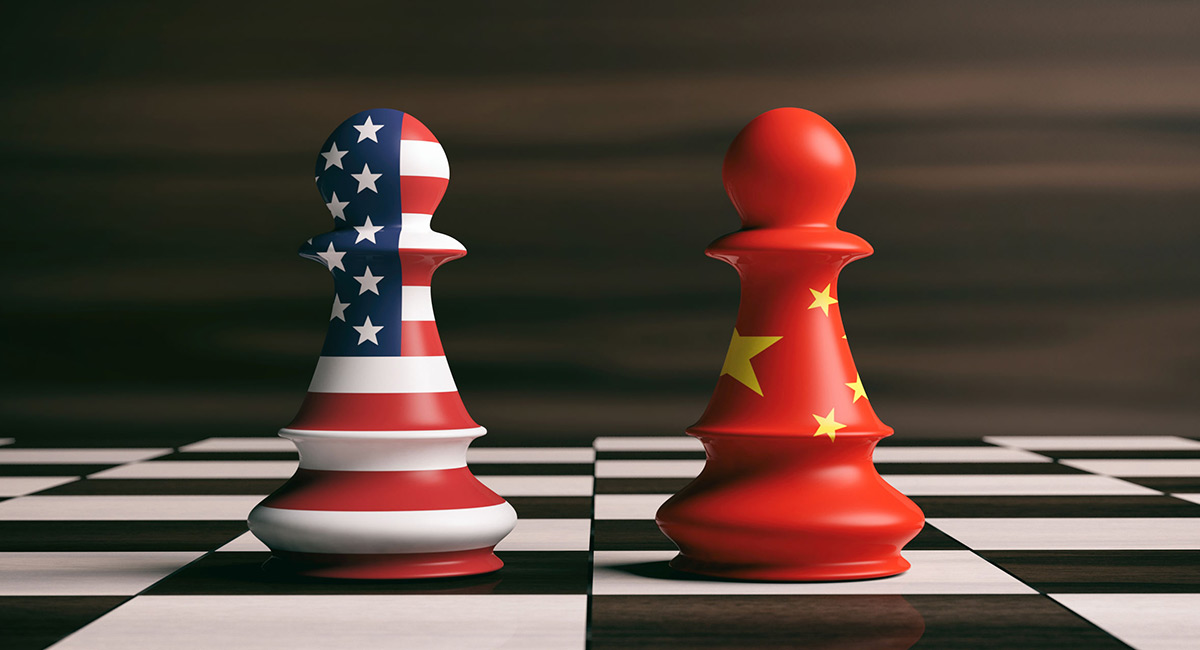New census numbers from China show the Chinese population just barely increased in the last 10 years. Demographers predict that in a few years, that same population will start declining. Birth rates have been plummeting in China since 2016. As countries develop economically, birth rates decline, because of factors such as education and focus on other life paths such as careers. For example, in East Asia, Japan and South Korea also have a problem with declining birth rates. However, China’s birth rate decline is severe and has happened before China has gotten rich as indicated by GDP per capita.
What does all this have to do with U.S. national security? China’s demographic time bomb likely will mean slower economic growth, as many fewer workers support many more elderly people. This inversion of the age pyramid could slow China’s stellar economic growth of the past decades. That recent explosive growth benefited greatly from favorable demographics, which are about ready to dissolve rapidly. A decline in younger people will mean a drop in the working-age population (people 16 to 59), which is already happening, thus slowing economic growth. And diminished economic growth will likely mean slower growth in Chinese defense spending.
Even now the United States has vastly outspent China on defense for decades, and cumulative spending does matter in the security realm. While China, with recent exponential economic growth, has been catching up, the gap is still wide: In 2020, the U.S. spent $778 billion and China spent only an estimated $252 billion. If China’s economic growth plateaus, so will its defense spending.
However, China hawks in the United States already make a big deal about Chinese “economic penetration” across the continents, including the developing world. Yet this threat has been vastly overstated. China’s state-driven “belt and road” worldwide infrastructure program to win favor and markets in recipient nations, many of which are developing, is likely to be a huge waste of money. Already, China has gotten a bad reputation for trying to gain leverage over developing countries by ensnaring them in unsustainable, high levels of debt to finance these boondoggles. Besides, unlike security relationships with potential foes—which are often a zero-sum game in which, if one country gains, the other loses—economic interactions between nations are usually mutually beneficial and even economic competition among rival countries makes the companies of both nations stronger.
At home, China also has troubles. A significant portion of China’s banks are weak, and it still has many inefficient state-owned industries, which drag economic growth. In the western provinces, it still oppresses Uighurs in Xinjiang and the Tibetans in Tibet, which require security forces and other draconian measures. Most important, the autocratic Xi Jinping has become the most powerful Chinese leader since Mao Zedong. This further empowering of the government and tightening of repression, even on the majority Han population, is never helpful for economic growth.
But what about China’s recent assertiveness in the East and South China Seas and toward Taiwan? These are non-strategic problems for the United States, about which it should worry less. Before the Trump administration, U.S. policy was official neutrality in territorial disputes between nations in East Asia. Yet, some of the countries opposing exaggerated Chinese territorial claims in those seas were either U.S. allies or friendly nations—so in reality, a U.S. naval presence in those seas put the United States effectively on the side of China’s opponents. To curry favor with the anti-China crowd at home, Trump shed even the veneer of neutrality in such territorial disputes, potentially dragging the United States further into the maw of conflict. Instead, the United States should not get involved at all in this regional squabbling, officially or unofficially. Because China is a big beneficiary of international commerce, it has little incentive to close passage of these seas to other nations; but if it does, U.S. commerce has alternative trade routes in the region.
Although Taiwan is a small democracy threatened by a large autocracy, the United States needs to wean itself away from even informal commitment to defend the island against China. The United States can sell arms to the wealthy Taiwan and even increase such sales. Taiwan, as an island, has intrinsic defensive advantages because amphibious invasions over open water are one of the most difficult military operations to successfully execute. The Taiwanese have a good air force, which could be made even better, that would likely be very successful in hitting vulnerable Chinese vessels carrying invasion forces and their surface ship escorts. Also, the United States could think about selling Taiwan offensive missiles that could deter a Chinese attack by posing a greater threat to the mainland. All such measures could be part of a Taiwanese “porcupine strategy,” where a less powerful country does not need to be able to win a war, only inflict unacceptable damage to a more capable adversary.
Whether China’s economic growth slows because of its problems, including too much state intervention in its economy (as the Japanese have experienced), or not, such a U.S. relaxation of its forward defense strategy in East Asia is a good idea. China should be respected as a rising power and allowed some influence over its near abroad. The Chinese do convincingly argue that they do not meddle militarily in Latin America, the traditional American sphere of influence. Thus, the American people should ask why the United States needs to be a military nanny to the smaller nations in China’s immediate neighborhood.

















